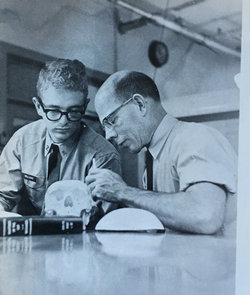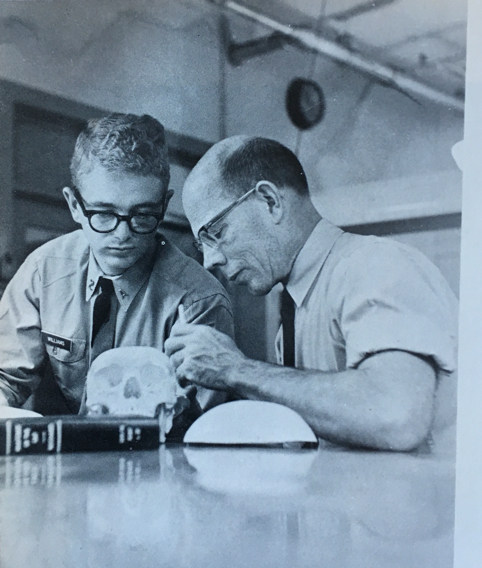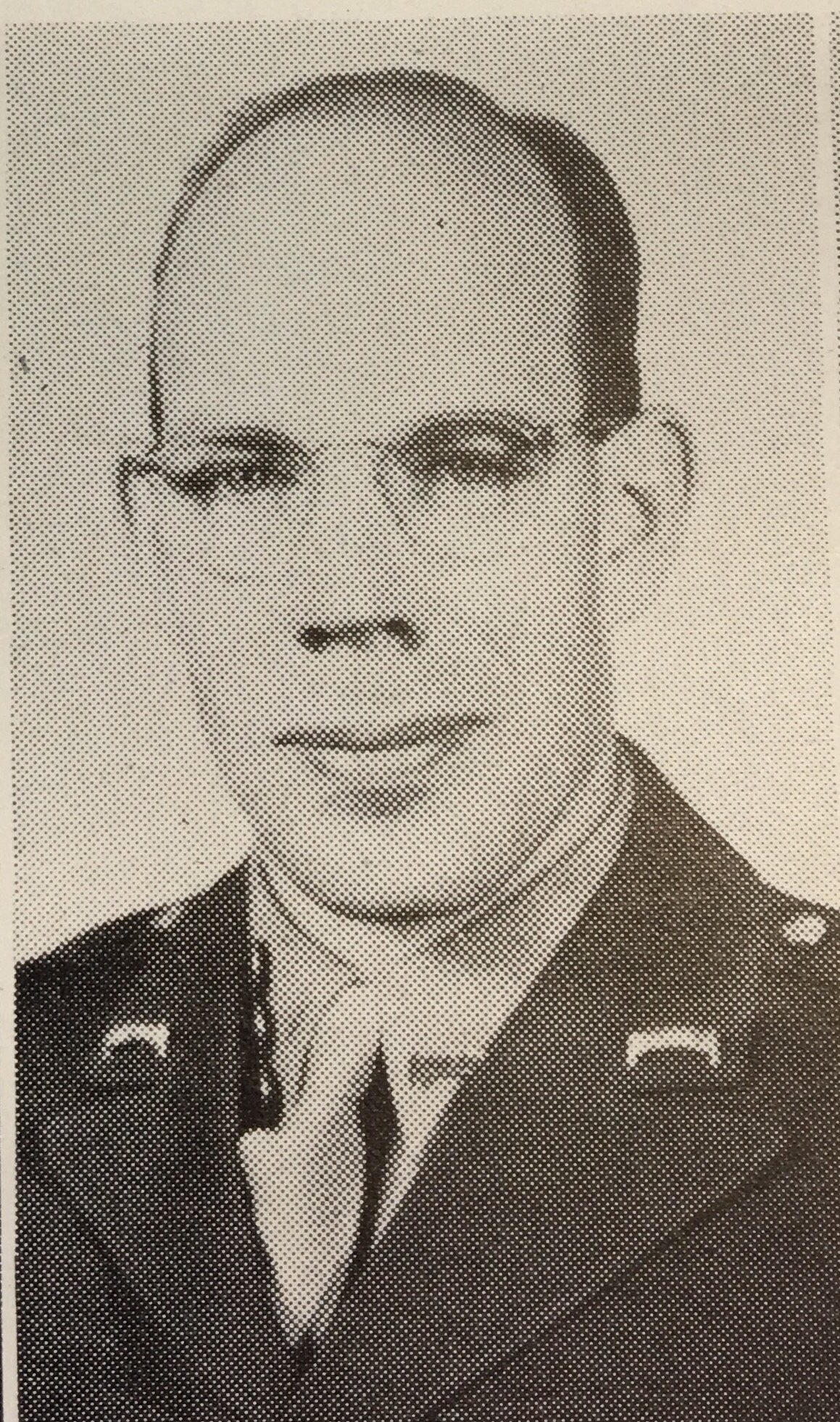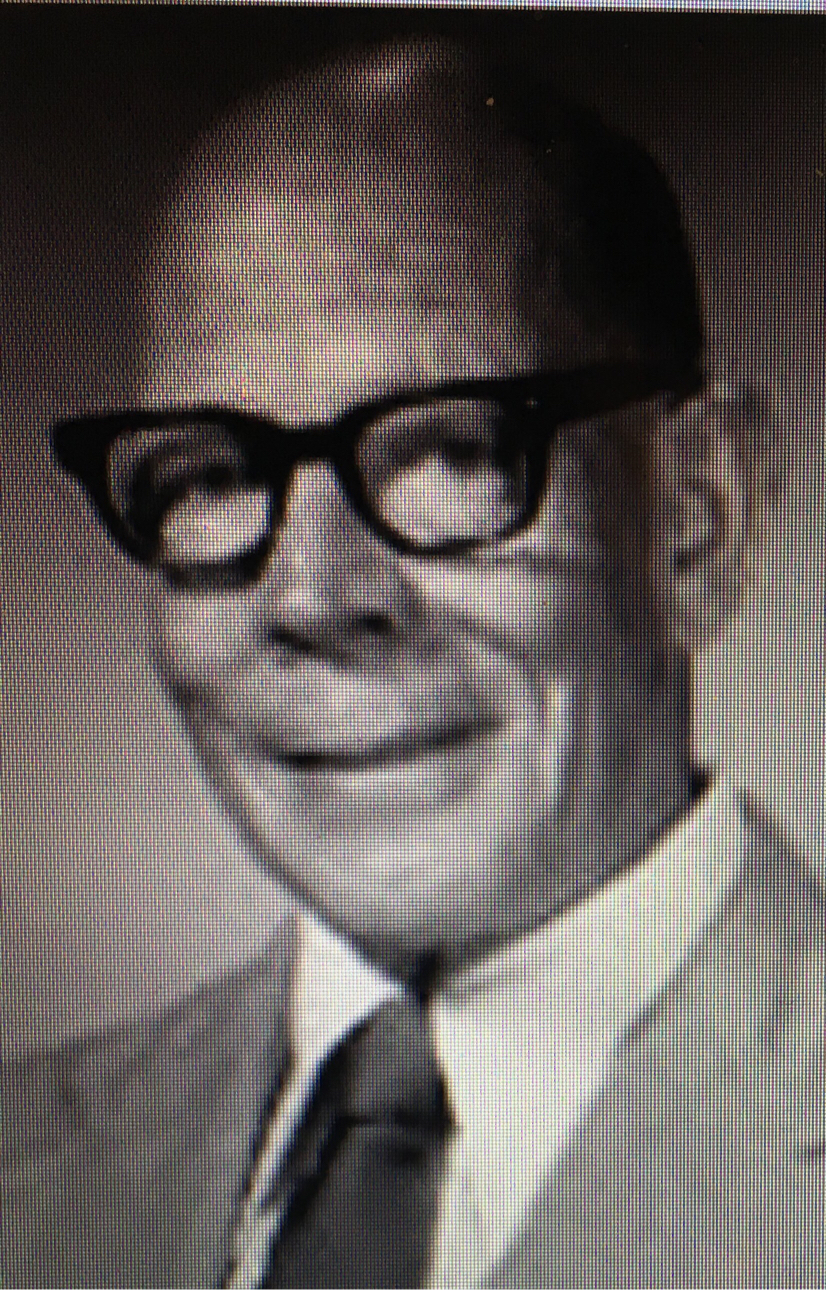Dr. Metcalf was born in Cleveland, Ohio. He received a bachelor's degree in zoology from Oberlin College in 1934 and a master's degree in protozoology from Columbia University in 1936. He received a doctorate in freshwater biology from Case Western University in 1940.
He received an honorary Doctor of Science degree from The Citadel for his contributions to the academic community of the Lowcountry of S. C.
He was a member of the American Association of Anatomists and S.C. Academy of Science and an honorary member of Beta Beta Beta. He was a member of First Scots Presbyterian Church.
In 1986, the I.S.H. Metcalf scholarship fund was started at The Citadel to honor him.
After Hurricane Hugo destroyed the organ at St. Lukes Chapel on the campus of MUSC, Dr. Metcalf got involved. The subcommittee called upon Dr. Gudger, an Associate Professor of Music at the College of Charleston and a prominent community organist, to design an organ specific to the acoustics of the chapel. The subcommittee chose the Bedient Organ Company of Lincoln, Nebraska, to build the organ. The honor of naming the organ was given to a major contributor to its construction. Dr. I.S.H. Metcalf named the organ in memory of his wife, Margaret. Dr. John Fesperman, the Curator of Musical Instruments at the Smithsonian Institution, first played the organ on January 28, 1994.
He was the widower of Margaret Jane Schnabel Metcalf. Surviving are two sons, Dr. John S. Metcalf of Johns Island, and Dr. David H. Metcalf of Charlottesville, Va.; and a grandson.
From his son, John Metcalf, M. D. in Nov. 2015, "We actually have a fairly complete geneology (constructed by my great uncle Keyes Metcalf, who was, for many years, the librarian at the New York Public Library and director of the Harvard University Library system)."
Col. Metcalfe (as he was designated at The Citadel) was my faculty advisor for my 4 years as a Citadel cadet and a wonderful man. He worked out regularly in the college swimming pool. A couple of unique and memorable physical things: (1) his walking gait was perfectly smooth and with no bounce or sway at all & hardly any swinging of the arms at all...he seemed almost to glide. And (2) he was so ambidextrous that, lecturing with his back to the class and in front of the large chalk board in the front of the room, he would start something with his left hand and change the chalk to his right hand to finish writing rightward...never missing a beat! We both started at MUSC at the same time, 1966...he as faculty and I as medical student. I will never forget Dr. Metcalf.
Dr. Metcalf was born in Cleveland, Ohio. He received a bachelor's degree in zoology from Oberlin College in 1934 and a master's degree in protozoology from Columbia University in 1936. He received a doctorate in freshwater biology from Case Western University in 1940.
He received an honorary Doctor of Science degree from The Citadel for his contributions to the academic community of the Lowcountry of S. C.
He was a member of the American Association of Anatomists and S.C. Academy of Science and an honorary member of Beta Beta Beta. He was a member of First Scots Presbyterian Church.
In 1986, the I.S.H. Metcalf scholarship fund was started at The Citadel to honor him.
After Hurricane Hugo destroyed the organ at St. Lukes Chapel on the campus of MUSC, Dr. Metcalf got involved. The subcommittee called upon Dr. Gudger, an Associate Professor of Music at the College of Charleston and a prominent community organist, to design an organ specific to the acoustics of the chapel. The subcommittee chose the Bedient Organ Company of Lincoln, Nebraska, to build the organ. The honor of naming the organ was given to a major contributor to its construction. Dr. I.S.H. Metcalf named the organ in memory of his wife, Margaret. Dr. John Fesperman, the Curator of Musical Instruments at the Smithsonian Institution, first played the organ on January 28, 1994.
He was the widower of Margaret Jane Schnabel Metcalf. Surviving are two sons, Dr. John S. Metcalf of Johns Island, and Dr. David H. Metcalf of Charlottesville, Va.; and a grandson.
From his son, John Metcalf, M. D. in Nov. 2015, "We actually have a fairly complete geneology (constructed by my great uncle Keyes Metcalf, who was, for many years, the librarian at the New York Public Library and director of the Harvard University Library system)."
Col. Metcalfe (as he was designated at The Citadel) was my faculty advisor for my 4 years as a Citadel cadet and a wonderful man. He worked out regularly in the college swimming pool. A couple of unique and memorable physical things: (1) his walking gait was perfectly smooth and with no bounce or sway at all & hardly any swinging of the arms at all...he seemed almost to glide. And (2) he was so ambidextrous that, lecturing with his back to the class and in front of the large chalk board in the front of the room, he would start something with his left hand and change the chalk to his right hand to finish writing rightward...never missing a beat! We both started at MUSC at the same time, 1966...he as faculty and I as medical student. I will never forget Dr. Metcalf.
Family Members
Sponsored by Ancestry
Advertisement
Advertisement











